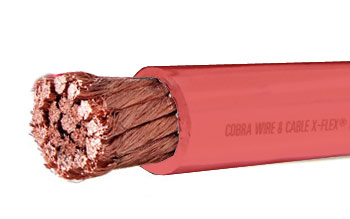
Choosing between an RV park and a campground can often be a difficult decision for outdoor enthusiasts and adventure seekers. While both provide the perfect environment to enjoy nature, they differ significantly in terms of facilities, amenities, and the role that cables play in maintaining these spaces.
RV Parks Vs. Campgrounds: What’s the Difference?
RV parks and campgrounds, though sometimes used interchangeably, are distinctly different. An RV Park is typically a facility that provides specialized amenities to accommodate Recreational Vehicles (RVs). These amenities often include hookups for electricity, water, and sewer, plus additional luxuries like Wi-Fi, laundry facilities, and recreational areas.
On the other hand, campgrounds provide a more rustic and natural setting. They cater primarily to tent campers and sometimes offer basic facilities such as restrooms, fire pits, picnic tables, and occasionally, electricity hookups. The overall experience at campgrounds leans more towards “roughing it” in comparison to the relative comfort of RV parks.
The Role of Cables in RV Parks and Campgrounds
Cables play an integral role in RV parks and, to a lesser extent, campgrounds, as they ensure the functionality of critical facilities. In RV parks, power cables connect the RVs to the park’s electrical system, providing the energy needed to run appliances, lighting, and other electronic devices within the RV. The design of these cables focuses on handling the challenges of outdoor use while ensuring a dependable, safe, and efficient transfer of electricity. Likewise, the park utilizes cables for distributing internet services, enabling guests to stay connected while enjoying their outdoor adventure.
At campgrounds, the use of cables is more limited but equally important. They are often used to provide electricity to communal areas such as restrooms and picnic areas. In some cases, campgrounds offer individual electrical hookups at camping sites, a feature that tent campers or small RV users might appreciate.
The Right Cables for RV Parks and Campgrounds
Within the vibrant world of RV parks and campgrounds, connectivity, and reliable power supplies reign supreme. With the increasing digitalization of our lives, the importance of communication cables in these settings has never been more significant. Among the most employed are the Tray Cable (TC) multi-conductor and the vertical shielded outdoor conductor, both integral to delivering seamless communication and control within these outdoor communities.
TC multi-conductor cables, known for their versatility and durability, play a crucial role in RV parks and campgrounds. They supply power to essential amenities, such as lighting systems and utilities, while also serving as control circuits. Their multi-conductor design allows them to carry multiple electrical signals within a single cable, offering flexibility in installations and ensuring that the park functions smoothly. On the other hand, vertical shielded outdoor conductors are employed to provide resilient connections in outdoor settings. Their shielded design safeguards the transmission of data, ensuring campers can remain connected to the digital world, even while immersing themselves in nature.
But the lifeline of any RV is its power source, and this is where battery cables come into the picture. These heavy-duty cables are essential for connecting the battery of an RV to its electrical system. They deliver the power required to run the vehicle and its onboard amenities, such as air conditioners, refrigerators, and entertainment systems. These cables, built to withstand the rigors of the road and the elements, offer a reliable, efficient, and safe way of energizing the RV lifestyle.
Conclusion
In conclusion, the nuanced differences between RV parks and campgrounds extend to the roles that cables play in ensuring a comfortable and enjoyable experience for outdoor enthusiasts. Whether it’s to power the luxury of an RV or light up communal facilities in a campground, cables prove to be an essential component in these outdoor settings. By understanding the types and applications of cables used, operators can make informed decisions that enhance their offerings, ensuring their visitors can enjoy the great outdoors without compromising on comfort and convenience.

